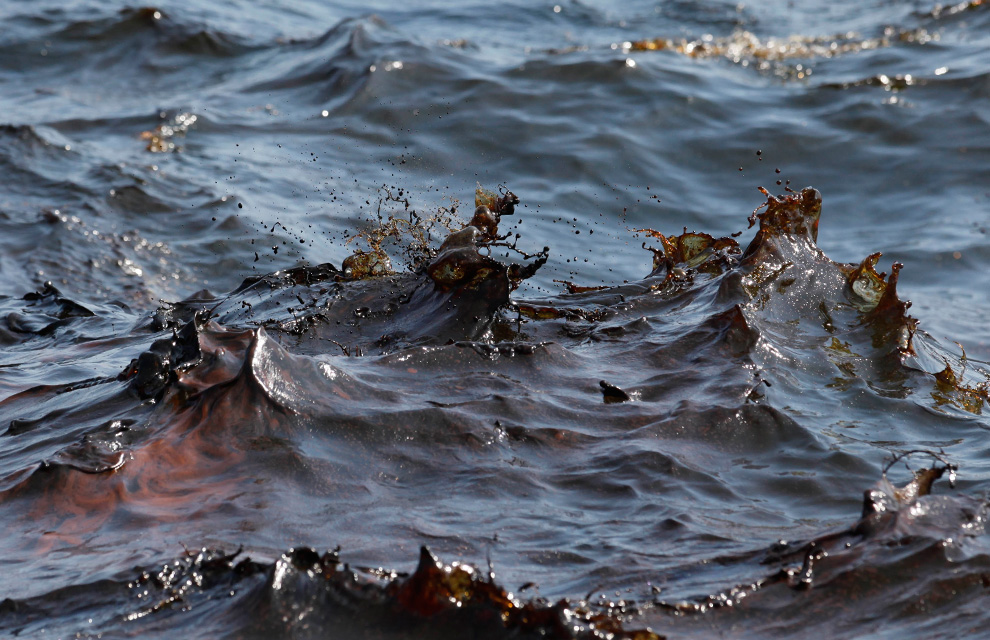![]() The appearance of an editorial in the far-right-leaning Washington Times challenging the reality of anthropogenic climate change is not particularly interesting. What is worth looking at is the width of the gap between the research cited by the editorialist and what the research is actually all about.
The appearance of an editorial in the far-right-leaning Washington Times challenging the reality of anthropogenic climate change is not particularly interesting. What is worth looking at is the width of the gap between the research cited by the editorialist and what the research is actually all about.
The trillionth tonne meme gets some traction
The first three of the “America’s Climate Choices” reports from a U.S. National Academy of Sciences committee restate the case that there is “strong, credible body of evidence, based on multiple lines of research, documenting that Earth is warming” and calls for the adoption of “an economy-wide carbon pricing system.” Not really Earth-shattering news, just climate-disrupting. What is worth drawing your attention to is the embrace of something akin to the “trillionth tonne” idea.
Continue reading “The trillionth tonne meme gets some traction”
Climate change math made simple
What’s being billed as the U.S. Senate’s last chance to pass a bill that deals with climate change, the American Power Act, aims for a now-familiar target: a reduction in greenhouse gas emissions of 83% by 2050. The idea is that if the developed world can manage to reach that goal, the global goal only has to be something like a 50% cut by mid century. As has been pointed out, this will not be easy.
The authors of a recent paper in PNAS call it “a forbidding challenge.” Why? It turns out the math and underlying science are much less forbidding. Allow me to take a stab at explaining it in hopes of shedding some light into the science that’s driving all the “alarmism.” I promise it’s not that difficult.
Continue reading “Climate change math made simple”
Vote for Climate Crock
The good news is one of the best video sources of dispassionate, accurate, science-based information about climate change, Climate Denial Crock of the Week, is in the running for a $5,000 grant, over at Brighter Planet. The bad news is, it’s an Internet poll that determines who gets the cash, so being worthy isn’t enough. You can help put CCoTW over the top (it’s currently in second place), but signing up and voting. You even get three votes! So, for once, I can say: “Vote early, vote often,” and mean it.
[UPDATE: We did it.]
The fuss over the Photoshopped polar bear …
… is actually good news for those holding down the scientific fort.
 Last week, Science published a letter from 255 members of the U.S. National Academy of Sciences pleading for “an end to McCarthy-like threats of criminal prosecution against our colleagues” in the climatology community. The letter laid bare (not bear) the scientific basis for the theory of anthropogenic climate change, a theory the authors said belongs in the same category as the theories of evolution and the Big Bang. So far so good. It was accompanied by a collage image of polar bear isolated on a single ice floe (at right), an image described as just that. But some took umbrage at its use, and it was replaced by a non-manipulated photograph (below right). No big deal, right?
Last week, Science published a letter from 255 members of the U.S. National Academy of Sciences pleading for “an end to McCarthy-like threats of criminal prosecution against our colleagues” in the climatology community. The letter laid bare (not bear) the scientific basis for the theory of anthropogenic climate change, a theory the authors said belongs in the same category as the theories of evolution and the Big Bang. So far so good. It was accompanied by a collage image of polar bear isolated on a single ice floe (at right), an image described as just that. But some took umbrage at its use, and it was replaced by a non-manipulated photograph (below right). No big deal, right?
Continue reading “The fuss over the Photoshopped polar bear …”
Images of the Deepwater disaster
The Boston Globe has assembled 40 outstanding photographs of what’s happening in the Gulf. Click on the shot below to see the rest:
Hot enough for you?
Most of the alarmism generated by climate predictions deals with sea level rise, drought, and biodiversity loss. But what happens to waterfront property, farms and polar bears could be the least of our worries if temperatures rise much more than a few degrees. A new paper in PNAS, “An adaptability limit to climate change due to heat stress,” paints a much more dire future for much of the larger mammals on the planet, including humans.
Clarion call for and end to attacks on climatologists
There’s a letter in today’s Science from 255 members of the National Academy of Sciences that deserves to be read:
Continue reading “Clarion call for and end to attacks on climatologists”
If you think the BP spill is bad….
The estimates of the just how much oil is spewing into the Gulf of Mexico from BP’s Deepwater Horizon rig keep rising. The latest guess — and it is just a guess — is something like 210,000 gallons a day. It is almost certainly going to eclipse the Exxon Valdez catastrophe by the time things are brought under control. Who knows how much damage has been done to the Gulf Coast ecology and economy? But could it be that we’re lucky this happened where and when it did, instead of a few years down the road in an even more difficult spot, say the Arctic Ocean?
A Christopher Monckton reality check
April seems to have been “Beat up on Christopher Monckton” month among climate science bloggers. Why all the attention? Part of the reason is even reputable media outlets the likes of The New York Times continue to treat him as the equal of someone with genuine professional expertise in matter climatological. Also relevant is his brief candidacy for public office in the May 6 general election in the U.K. He is now just climate change spokesperson for the UK Independence Party.

